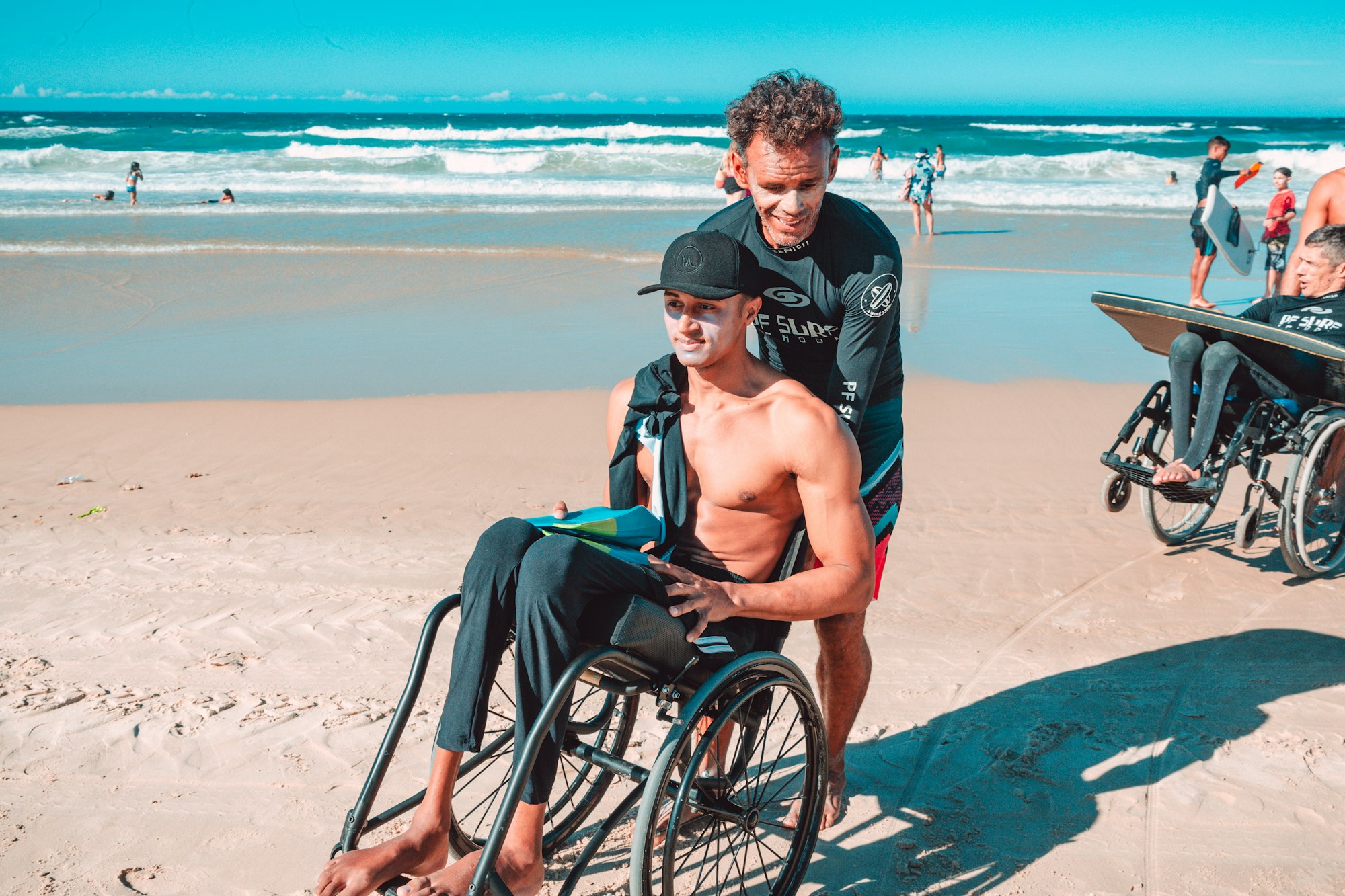Ndis Providers Sydney: The secret to smoother home care transitions
Ndis Providers Sydney: The secret to smoother home care transitions
Blog Article
The Important Connection In Between Handicap Providers and Effective Home Care Solutions
The relationship in between special needs services and home care solutions is vital for enhancing the lives of people with specials needs. Impairment solutions supply essential resources and assistance. Home treatment options offer personalized aid in acquainted environments. This collaboration advertises self-reliance and social inclusion. The specifics of how these components communicate continue to be complicated. Comprehending this connection can disclose new understandings into boosting look after those in demand. What are the implications for caretakers and people alike?
Understanding Impairment Providers: An Introduction
While several people might not totally grasp the intricacies of impairment solutions, understanding their range and significance is crucial for promoting inclusivity. Impairment services encompass a vast array of support mechanisms made to aid individuals with physical, intellectual, or developmental specials needs. These solutions objective to enhance the lifestyle, advertising self-reliance and participation in culture. They consist of curricula, employment assistance, transportation assistance, and medical care services customized to private needs.Furthermore, these solutions commonly entail collaboration amongst different stakeholders, consisting of federal government agencies, charitable companies, and community groups. This collaborative technique warranties that people obtain extensive assistance that resolves their one-of-a-kind challenges. Awareness of special needs solutions is essential, as it encourages societal acceptance and the removal of preconception. By identifying the value of these solutions, areas can produce a more inclusive environment, inevitably profiting everybody and advertising equal opportunities for people with handicaps.
The Duty of Home Treatment in Supporting People With Disabilities
Home treatment plays a crucial duty in improving the lives of people with handicaps by giving individualized support in acquainted settings. This kind of treatment enables individuals to keep their self-reliance while obtaining assistance customized to their certain needs. Caretakers not only supply physical support, such as aid with everyday activities like showering and meal prep work, however also provide psychological motivation and companionship.In addition to useful aid, home treatment solutions promote social communication, which is essential for psychological wellness. By involving individuals in community tasks or assisting in communication with friends and family, caregivers assist combat feelings of seclusion. Home care likewise reduces the worry on family participants, allowing them to concentrate on their own responsibilities while ensuring their enjoyed ones obtain ample care (Disability Services Provider). Ultimately, home care functions as a substantial support group, encouraging people with disabilities to flourish within their own homes
Tailored Care Strategies: Satisfying Distinct Demands
Customized care plans are crucial for efficiently attending to the one-of-a-kind needs of individuals with impairments. These plans are created to supply tailored assistance, taking into account the specific obstacles and preferences of each individual. By conducting detailed analyses, treatment providers can recognize locations and strengths requiring assistance, guaranteeing that treatment is both relevant and effective.Incorporating input from the specific and their family participants cultivates a joint strategy, enhancing interaction and satisfaction. Customized treatment plans might consist of various services, such as physical treatment, occupational therapy, and personal treatment support, all focused on advertising overall well-being. Normal assessments of these treatment plans are essential to adjust to transforming demands and conditions. This flexibility permits prompt modifications, making sure that people get excellent assistance throughout their lives. Eventually, tailored treatment plans work as a foundation for supplying high quality treatment that respects the dignity and originality of everyone.
Enhancing Self-reliance Through Disability Services
Encouraging individuals with disabilities to achieve higher independence is a main objective of disability services. These solutions supply essential sources that promote self-sufficiency and boost the lifestyle for those impacted. By offering personalized assistance, such as wheelchair training, flexible modern technologies, and life skills development, impairment solutions allow people to browse everyday challenges a lot more effectively.Access to community-based programs and social addition efforts additionally cultivates independence. With these possibilities, people can participate in purposeful activities, develop relationships, and establish a feeling of belonging. Furthermore, details and recommendation solutions aid link people to critical resources, ensuring they obtain the support required to thrive.Ultimately, enhancing independence with disability services not only benefits people however also advertises an extra comprehensive culture. By breaking down obstacles and encouraging self-advocacy, these solutions equip people to lead fulfilling lives, adding to their neighborhoods in beneficial ways.
The Value of Educating for Caretakers
Educating for caregivers is crucial for creating vital skills that straight affect the quality of care given to individuals with impairments. By boosting their knowledge and capabilities, caretakers can cultivate compassionate partnerships that advertise trust and understanding. This concentrate on training not only boosts service delivery however likewise enriches the overall caregiving experience.
Crucial Skill Advancement
Skill growth is crucial for caretakers in the disability services and home care sectors. Proper training equips caretakers with the essential skills needed to offer efficient assistance and assistance to individuals with handicaps. This consists of understanding certain medical requirements, efficient interaction techniques, and the capacity to react to different behavioral obstacles. Furthermore, ability development boosts caretakers' capability to cultivate freedom in clients, ensuring they can do everyday tasks with dignity. Continuous training also advertises self-confidence and job fulfillment among caretakers, decreasing turn over rates in the market. By focusing on ability growth, organizations can ensure that caretakers are well-prepared to fulfill the diverse requirements of those they offer, eventually contributing to a more caring and effective treatment atmosphere.
Enhancing Care Quality
Elevating the top quality of treatment for individuals with disabilities rests on the comprehensive training given to caretakers. Well-trained caretakers have essential understanding and skills needed to resolve the one-of-a-kind demands of their clients efficiently. Substantial training programs encompass numerous aspects, such as understanding disability-specific obstacles, reliable interaction techniques, and safety and security procedures. Additionally, recurring education guarantees that caregivers continue to be updated on finest practices and arising technologies in home treatment - Disability Services Sydney. This commitment to training not just boosts solution distribution but likewise promotes a sense of confidence amongst caretakers, which equates into boosted care quality. Ultimately, purchasing caregiver training is crucial for developing an environment where individuals with handicaps obtain the mindful, respectful, and effective treatment they should have
Building Compassionate Relationships

Constructing a Supportive Environment in your home

Accessible Home Modifications
Many individuals with handicaps face considerable challenges in steering their home settings, making easily accessible home adjustments important for cultivating self-reliance and security. These alterations can consist of setting up ramps, broadening doorways, and creating barrier-free bathrooms, thus allowing less complicated gain access to throughout the home. Furthermore, adding grab bars and non-slip surfaces can significantly decrease the threat of falls, promoting a much more secure living area. Lifts or stairlifts may additionally be required for multi-level homes, guaranteeing that all locations are reachable. By implementing these modifications, caretakers can aid develop a setting where people can navigate their rooms with confidence. Inevitably, obtainable home adjustments play a vital function in boosting the high quality of life for those with handicaps, enabling them to grow in their own homes.
Personalized Treatment Plans
Easily accessible home modifications lay the foundation for a setting where individuals with specials needs can grow, yet tailored support is just as vital. Customized care strategies play an important duty in dealing with the one-of-a-kind demands of each individual. These plans are created with extensive analyses that take into consideration clinical requirements, individual click to read preferences, and everyday routines. By blog here focusing on individual staminas and obstacles, caregivers can develop techniques that foster independence and enhance top quality of life. Regular assessments guarantee that treatment strategies continue to be appropriate and reliable, permitting modifications as needs change with time. This individualized technique not only improves the experience of those getting care however likewise promotes a feeling of freedom, eventually adding to a more encouraging and empowering home environment.
Household Participation Approaches
Family participation is vital in establishing a supportive environment for people with handicaps at home. Engaging member of the family in treatment techniques fosters a feeling of belonging and protection. Efficient communication is essential; regular family members conferences can help with discussions about the person's needs and preferences. Furthermore, educating member of the family about the certain disabilities can enhance understanding and compassion, leading to better support. Encouraging involvement in everyday tasks not just strengthens relationships yet additionally advertises independence for the individual. It is essential for family members to team up with handicap provider to create cohesive treatment plans. By proactively including household participants, a supporting ambience is grown, ultimately improving the lifestyle for those with disabilities.
Measuring the Effect of Integrated Treatment Solutions
The effectiveness of incorporated treatment solutions can greatly influence the high quality of life for people with disabilities. Measuring this influence needs a complex technique that encompasses various metrics, including health end results, individual complete satisfaction, and cost-effectiveness. Health and wellness end results can be assessed by tracking enhancements in flexibility, psychological health, and general health, giving substantial evidence of care efficiency. Individual contentment surveys can capture the experiences of people and their families, providing understandings into the perceived high quality of treatment obtained. Furthermore, analyzing cost-effectiveness assists to assure that sources are being used effectively, permitting lasting treatment models. By using these dimension techniques, stakeholders can obtain an extensive understanding of how incorporated care solutions favorably impact people with handicaps. Inevitably, this information not only help in refining existing services yet likewise notifies future policy decisions, making certain that care continues to be lined up with the advancing demands of this populace.
Frequently Asked Concerns
How Can Households Advocate for Better Handicap Services and Home Treatment?
Families can promote for boosted impairment solutions and home care by researching sources, attending neighborhood meetings, engaging with neighborhood representatives, sharing individual experiences, developing support system, and working together with companies dedicated to handicap rights and care improvements.
What Prevail Mistaken Beliefs About Impairment Solutions and Home Treatment?

Exist Financial Help Options for Disability Providers and Home Care?
Economic assistance choices for disability services and home care consist of federal government programs, grants, and insurance policy protection. Resources differ by area, requiring people to study local companies and companies that offer economic support tailored to their demands.
How Can Innovation Improve Home Look After People With Disabilities?
Technology can improve home look after individuals with handicaps by providing assistive gadgets, telehealth services, and checking systems. These developments boost accessibility, promote self-reliance, and make it possible for caretakers to react better to the demands of their clients.
What Resources Are Available for Caretakers of People With Disabilities?
Different resources exist for caregivers of individuals with specials needs, consisting of entitlement program programs, support system, educational workshops, online forums, and specialized training. These resources aim to enhance caregivers' skills and provide emotional and sensible support. The relationship between handicap services and home care services is crucial for boosting the lives of people with handicaps. Home treatment additionally relieves the worry on household participants, enabling them to focus on their own obligations while ensuring their loved ones get appropriate treatment. By carrying out detailed analyses, care companies can recognize toughness and locations calling for help, guaranteeing that care is both effective.incorporating and appropriate input from the individual and their household members fosters a joint technique, enhancing engagement and complete satisfaction. Tailored treatment plans might include numerous services, such as physical therapy, job-related therapy, and personal care support, all aimed at advertising total wellness. Technology can boost home care for people with impairments by giving assistive gadgets, telehealth services, and keeping track of systems.
Report this page